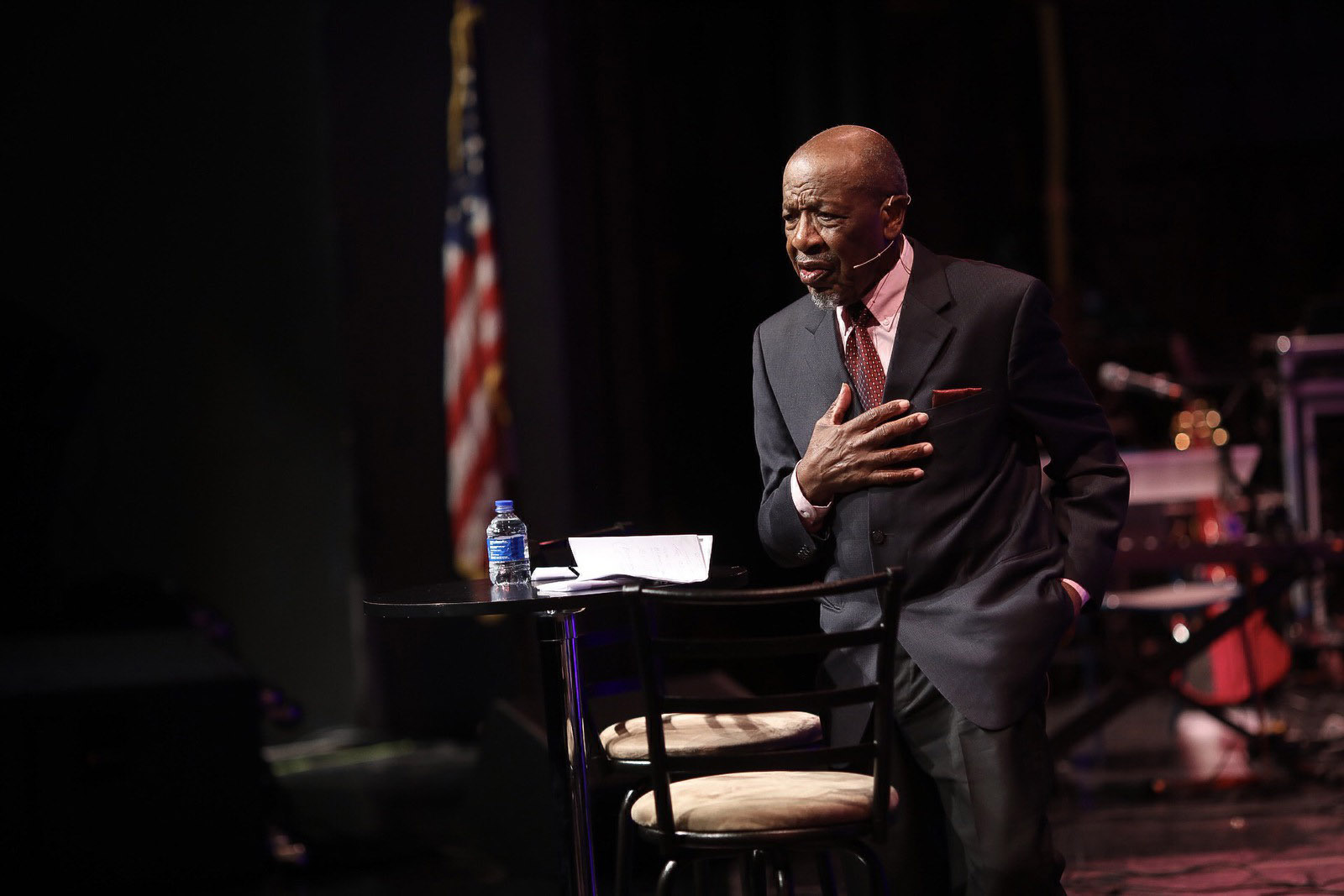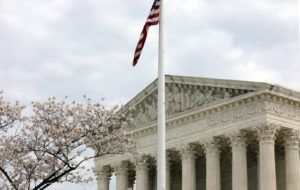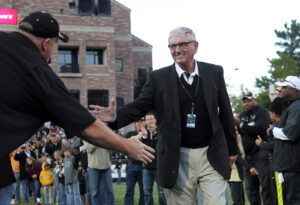
MOBILE, Ala. (BP) — Messages emphasizing relationship and friendship as a way to combat racial strife were set forth to more than 1,600 ministers, church members, youth and senior citizens during a “Shrink the Divide” gathering in Mobile, Ala.
 As ushers in gray T-shirts with Shrink the Divide in white letters handed out programs and directed visitors to seats in the Mobile Civic Center Theater, the atmosphere took on the feel of a worship service. A praise band shared several songs including one with the words, “There is power in the name of Jesus to break every chain.”
As ushers in gray T-shirts with Shrink the Divide in white letters handed out programs and directed visitors to seats in the Mobile Civic Center Theater, the atmosphere took on the feel of a worship service. A praise band shared several songs including one with the words, “There is power in the name of Jesus to break every chain.”
Shrink the Divide — a July 24 gathering for racial reconciliation — was sponsored by The Pledge Group, encompassing Mobile-area pastors who are seeking “to unify the body of Christ and our communities across ethnic and denominational lines, realizing that racism is a heart/sin problem and only the gospel will bring about such unity.”
Ed Litton, pastor of Redemption Church in Saraland, Ala., was one of the event organizers. “We could not be more excited and satisfied with this event,” he told The Alabama Baptist. “Our response from those who want to join us in practical ways of shrinking the divide was overwhelming.”
Keynote speakers Russell Moore, president of the Southern Baptist Ethics & Religious Liberty Commission, and John M. Perkins, a minister, civil rights activist, Bible teacher and author, focused on the Gospel and authentic Christianity.
Moore, who along with Perkins received a standing ovation when he entered the stage, told the crowd “that once you are in the family of God, you are a joint heir with Jesus Christ.”
“If you have really been brought in by this Gospel, then that’s going to change the way you see things, including the way you see yourself in relation to other people,” Moore said.
Issues involving reconciliation “could not be more relevant in the kind of American society that we are in right now that is riddled with division, riddled with racism, riddled with injustice, riddled often with hatred for one another and often infected with a kind of racism and racial animosity that is more subtle than it would have been at other points in American history which means that it is even more dangerous,” Moore said, while acknowledging, “What God has called you to do is going to take time.”
Perkins described the situation as a crisis of belief and owning sin.
“Our crisis is in not understanding authentic Christianity,” he said. “Sin is a rebellion against God and all sin in the end becomes your own. That’s a problem. The problem is that we don’t own our sin. And so we don’t believe. We don’t own our sin and so we can’t forgive. And even now we use our sin as a weapon. I won’t commit to you because you hurt me so bad and you might hurt me again. The problem is a crisis of belief.”
The church must call the world “into a relationship with Jesus Christ and each other,” Perkins said. “And the Christian life must be the outward [manifestation] of the image of Christ.”
During a press conference prior to the event, Perkins said Christians must learn to be intentional in their obedience, and “the wraparound in Scripture is friendship.”
“The sin unto death is the sin we don’t confess,” he said. “The thief on the cross got that. He wasn’t baptized. He wasn’t a Baptist. He wasn’t a Presbyterian. He wasn’t an usher. He got that. He got that because it was intentional.”
Rob Couch, senior pastor of Christ United Methodist Church in Mobile, agreed.
“I really believe that the key to all this is building friendships with people,” Couch told The Alabama Baptist. “I think that when we get to know one another, we can realize how much we have in common [and], a lot of these barriers will start to come down.”
Litton, also speaking at the press conference, added that understanding the Gospel is vital.
“But the problem is we see a church that is more polarized than the unchurched…. [T]he church holds certain doctrinal beliefs, and we’re not questioning those, but it’s how we apply them,” he said. “We’ve got to return to the basics of seeing another person as made in the image of God, which means they have value and worth and that their skin color is in the beauty of what God made them to be and we accept that person and love that person, and it doesn’t matter if you vote like me, think like me or look like me, but that God placed you here, and I honor you because God made you.”
Members of The Pledge Group have been working on relationships and getting to know one another for nearly four years.
“In the process we’ve learned what it is to love each other, what it is to become friends, what it is to carry one another’s burdens and wounds,” Litton noted. “And in that process we began to spread out to others.”
Jerry Jenkins, senior pastor of Moffett Road Assembly of God, told The Alabama Baptist that as a younger man, racial segregation caused him to leave Mobile, but spiritual intervention compelled him to return.
The death of Michael Brown in Ferguson, Mo., led him and other pastors to discuss avoiding a similar incident in Mobile and ultimately his decision to join The Pledge Group.
“We are seeing the racial division come down in my church,” Jenkins said. “We are integrated.”
The Pledge and its outworkings, drafted by the group, state:
“I pledge to love my neighbor and to reject my tendency to distance myself from those different from me.”
Carry Forward The Pledge
— In my daily context, I will recognize and engage with persons of other races, speaking a warm greeting to them as fellow travelers on the journey of life;
–In my prayers, I will pray regularly for racial unity and harmony and for spiritual revival in our shared local communities and in our nation;
— In my personal initiative, I will pro-actively foster and deepen relationships with persons across racial, socio-economic, ethnic and denominational lines.
For more information, go to www.thepledge.us or www.shrinkthedivide.com.












